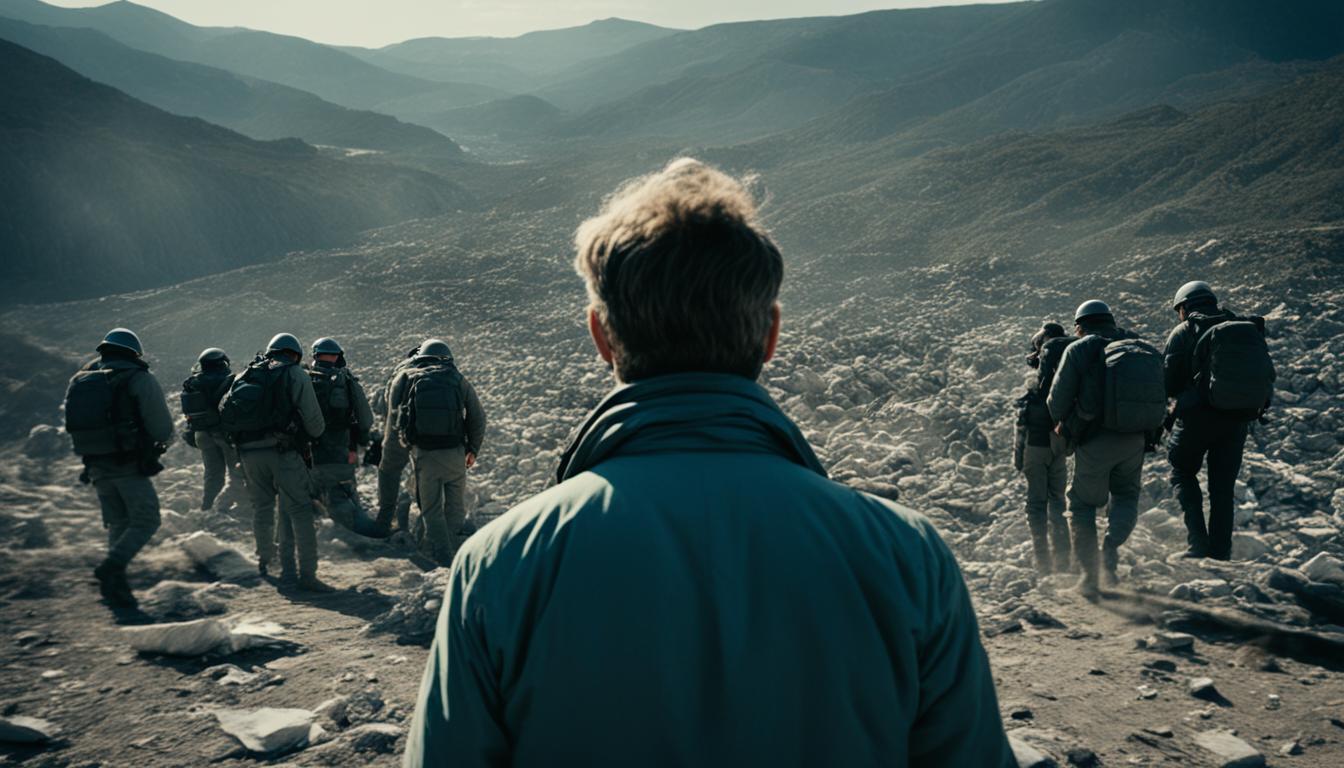Welcome to our comprehensive guide on navigating the legal considerations in media law. Understanding the intricacies of media law is essential for individuals and organizations operating in the media landscape. From releases and rights to copyright clearance and intellectual property rights, there are important factors to consider to ensure compliance and protect the rights of all parties involved.
Media law encompasses a wide range of areas, including telecommunications law and print law. However, in this article, we will focus on key legal considerations that are crucial for anyone involved in media activities. These areas include privacy, defamation, and copyright, along with intellectual property rights. By familiarizing yourself with these legal aspects, you can navigate the media landscape responsibly and minimize the risk of legal issues.
Key Takeaways:
- Understanding legal considerations is vital for compliance and protection in media law.
- Privacy laws regulate the collection and use of personal information by media personnel.
- Responsible reporting is crucial to avoid defamation and its consequences.
- Copyright and intellectual property rights protect creative works in media.
- Deepfakes present new legal challenges that require proactive measures.
Privacy and Media Law
When it comes to navigating the complexities of media law, one area that requires careful attention is privacy. In an era dominated by digital media and widespread information sharing, privacy laws play a critical role in safeguarding individuals from unauthorized disclosure of personal information.
The Privacy Act, which regulates the collection, storage, and use of personal information by both public and private agencies, sets the boundaries for media personnel when it comes to revealing certain details about individuals. Even if the portrayal is accurate, media professionals must exercise caution and obtain permission before disclosing personal information.
Privacy laws also restrict the publication of private facts and the exploitation of personal attributes for sensationalist purposes. It is essential to respect an individual’s right to privacy and avoid any unnecessary infringement.
“Protection of personal privacy is of utmost importance in today’s digital age. As responsible media personnel, it is our duty to navigate these privacy laws diligently.” – John Smith, Media Law Expert
Maintaining a professional relationship with the community is vital for media professionals. By engaging in responsible reporting that focuses on matters of legitimate public interest, media personnel can build trust and credibility while minimizing the likelihood of liability.
Liability and Professional Relationship
When media professionals uphold their professional duties and adhere to privacy laws, they can minimize the risk of facing legal consequences. Establishing a reliable and ethical professional relationship with the community ensures that news reporting is conducted in a responsible and respectful manner, mitigating potential liabilities.
By prioritizing privacy and maintaining a strong professional relationship, media personnel can navigate the legal intricacies of media law effectively.
Defamation and Media Law
Defamation, comprising both libel (written statements) and slander (verbal statements), refers to false statements that harm an individual’s reputation. As media professionals, it is crucial for us to engage in responsible reporting to avoid potential defamation lawsuits and uphold the integrity of our work.
When reporting, we must adhere to a set of principles to ensure responsible journalism:
- Thoroughness: We must conduct comprehensive research and fact-checking to verify the information we present. This helps us avoid spreading false statements that could potentially damage someone’s reputation.
- Fairness: Our reporting should be fair and unbiased, providing a balanced perspective. We should give individuals an opportunity to respond to any allegations made against them.
- Accuracy: It is crucial that our reporting is accurate, as spreading inaccurate information can harm both individuals and communities. By double-checking our sources and verifying facts, we can ensure the credibility and reliability of our reporting.
- Proper Source Attribution: To maintain ethical standards, we must attribute our sources properly. This not only helps to substantiate our claims but also provides transparency to readers, enabling them to evaluate the credibility of the information presented.
- Avoid Implications Without Support: It is essential to refrain from making implications that we cannot support with evidence. Speculation and conjecture should be avoided, as they can mislead readers and potentially lead to legal consequences.
Failure to adhere to these principles of responsible reporting can have severe legal and financial consequences. Protecting the reputation and rights of individuals should always be a top priority in our journalistic endeavors. By upholding ethical standards, we can contribute positively to the media landscape and promote responsible reporting.
Key Takeaways:
- Defamation includes both libel (written statements) and slander (verbal statements) that harm an individual’s reputation.
- Responsible reporting is essential to avoid potential defamation lawsuits.
- Thorough research, fairness, accuracy, proper source attribution, and avoiding unsupported implications are fundamental principles of responsible reporting.
- Failure to report responsibly can result in severe legal and financial consequences.

Copyright and Intellectual Property in Media Law
Copyright laws play a crucial role in protecting various creative works within the realm of media law. These laws safeguard literary works, music, films, and other artistic creations, granting copyright owners the exclusive rights to reproduce their works. These rights enable copyright owners to control how their works are used and disseminated, ensuring that they receive appropriate recognition and compensation for their creative endeavors.
However, it is important to note that copyright laws do not protect facts. This distinction allows news media outlets to report on factual information without infringing on copyright. Journalists can freely convey factual details without seeking permission from the copyright owner, as long as they accurately represent the information.
On the other hand, intellectual property law encompasses a broader scope, extending beyond copyright protection. It encompasses various forms of intangible assets, including inventions, trademarks, and trade secrets. Intellectual property rights aim to encourage innovation, creativity, and fair competition by granting legal protection to individuals and organizations.
Understanding the intricacies of copyright and intellectual property rights is essential in media law to avoid infringement and ensure compliance with relevant regulations. By respecting these legal frameworks, both content creators and users can foster a balanced ecosystem that protects intellectual property while promoting artistic expression and innovation.
“Copyright and intellectual property rights play a vital role in safeguarding the fruits of creative work, both in the realm of media law and beyond. By upholding these rights, we foster a culture of respect, fair compensation, and innovation in the creative industries.”
Examples of Creative Works Protected by Copyright:
Copyright protection extends to a wide range of creative works. Here are some examples:
- Literary works, including books, articles, and blog posts
- Music compositions and lyrics
- Films, television shows, and documentaries
- Artistic works, such as paintings, sculptures, and photographs
- Dramatic works, including plays and musicals
- Architectural designs
The following table provides a comprehensive overview of copyright protection for these creative works:
| Creative Work | Protected by Copyright? |
|---|---|
| Literary works | Yes |
| Music compositions and lyrics | Yes |
| Films, television shows, and documentaries | Yes |
| Artistic works | Yes |
| Dramatic works | Yes |
| Architectural designs | Yes |
Note: This table is not exhaustive and serves as an illustrative example.
As for intellectual property law, it encompasses a wide array of intangible assets beyond copyright protection. These include:
- Inventions protected by patents
- Trademarks indicating the origin of products or services
- Trade secrets safeguarding confidential business information
“Intellectual property rights promote a vibrant ecosystem where inventors, entrepreneurs, and artists are encouraged to share their creations while also ensuring fair protection and rewards for their ingenuity.”
Understanding the distinctions between copyright and intellectual property law is fundamental to navigate the complex landscape of media law, enabling content creators, media professionals, and consumers alike to contribute to a vibrant and legally compliant creative environment.
Conclusion
Deepfakes present us with a multitude of legal challenges, including the spread of misinformation, potential defamation, and the creation and distribution of nonconsensual pornography. These issues demand our attention and innovative solutions.
As a legal community, we can tackle these challenges head-on by proposing new laws and regulations specifically designed to address synthetic media, bolstering existing legal frameworks, and establishing clear legal guidelines. Collaboration with the technology industry is also crucial, as we work together to develop tools and technologies that can detect and mitigate the harmful effects of deepfakes.
Additionally, public education plays a vital role in navigating the legal considerations surrounding deepfakes. By raising awareness about the potential dangers and ethical implications, we can empower individuals to recognize and critically evaluate manipulated content. It is through collective effort and collaboration that we can ensure responsible and ethical use of deepfakes in our society.
FAQ
What are some important legal considerations in media law?
Important legal considerations in media law include privacy, libel and slander, copyright and intellectual property, freedom of information, and equal time and coverage.
What do privacy laws regulate in the context of media?
Privacy laws regulate the collection, storage, and use of personal information by public and private agencies. Media personnel must be cautious not to reveal certain information about individuals without their permission, even if the portrayal is accurate.
How can media professionals avoid liability related to privacy issues?
Media professionals can avoid liability related to privacy issues by maintaining a professional relationship with the community, reporting on matters of legitimate public interest, and refraining from publishing private facts or using personal attributes for exploitative purposes.
What is defamation, and how does it relate to media law?
Defamation refers to false statements that harm an individual’s reputation, and it can take the form of libel (written statements) or slander (verbal statements). Media outlets must engage in responsible reporting to avoid defamation lawsuits.
How can journalists avoid legal consequences related to defamation?
Journalists can avoid legal consequences related to defamation by being thorough, fair, and accurate in their reporting, properly attributing sources, and avoiding creating implications that they cannot support.
What is copyright, and how does it apply to media law?
Copyright laws protect various creative works, such as literary works, music, and films. Copyright owners have the right to grant permission for the reproduction of their works. Intellectual property law covers a broader range of intangible assets and seeks to encourage innovation and creativity.
What can media professionals do to ensure compliance with copyright and intellectual property laws?
Media professionals can ensure compliance with copyright and intellectual property laws by understanding the rights of copyright owners, seeking copyright clearance and licensing agreements, and respecting the intellectual property rights of others.
What are some legal challenges associated with deepfakes?
Legal challenges associated with deepfakes include misinformation, defamation, and nonconsensual pornography. These challenges can be addressed through the development of new laws and regulations specific to synthetic media, strengthening existing laws, creating legal guidelines, collaborating with the technology industry, and promoting public education.
What legal considerations should be taken into account when using drones for photography in landscapes?
When using drones for photography in landscapes, there are some important legal considerations to keep in mind. Before taking off, always check local regulations and secure any necessary permits. It’s also crucial to respect people’s privacy and avoid flying in restricted airspace. Following these tips for drone photography will help ensure a safe and legal experience.




